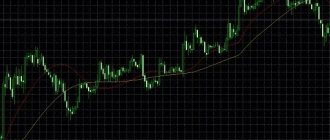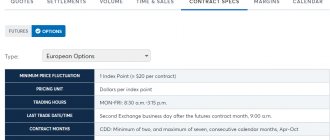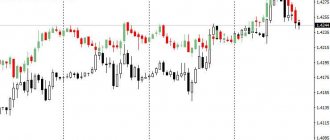From the article you will learn:
Trader rules come from several areas. For example, from psychology. You must know yourself, know your weaknesses, then your strengths will become more useful, and you will learn to control yourself.
On the other hand, the rules of a successful trader are recommendations that relate to the trading system. After all, no trader, even the most seasoned one, can become successful if he does not have successful trading rules in his arsenal.
Another type of rule concerns trading philosophy. It is the right philosophy that helps create a profitable trading system and withstand the psychological stress that falls on the trader.
Always use stop losses
Stop loss fixes losses, which is, of course, an extremely unpleasant situation for every trader. To make it easier to cope with losses, treat them as insurance. You pay this insurance against major losses. In life, we also often take insurance, but for some reason we take it calmly. In trading, you also need to be calm about such fees.
A triggered stop loss is a payment for insurance against large losses.
Sometimes stop losses are triggered too often. In this case, you need to adjust your trading system. Perhaps the position is opened in the wrong place or the stop loss is too small.
This is one of the most important rules that allows you to always stay “in the game”. Sitting out unprofitable trades is fraught with risk.
I also advise you to use the “2% rule”, which states:
Never risk more than 2% of your deposit in one trade.
This is the optimal figure that allows you to preserve both the nerves and sanity of the trader.
I recommend checking out:
- How to look for the best stop loss levels;
Trading Rules: What a novice trader needs to do
It is important for a new trader to build a solid foundation before starting to trade. Every habit you develop will have an impact on your success in the future. The market can be chaotic, and learning to find clarity in the chaos is difficult. The harsh truth is this:
- You will make mistakes.
- You will lose money.
- Sometimes you will be very upset.
Don't let failure bring you to a psychological point of no return. Learning to be a successful trader is an ongoing process. Even the best traders failed before they found success. Surprisingly, the best traders are not those who are the smartest, the most talented, or the best with numbers. The best are those who are psychologically stable, do not lose heart, are disciplined and are ready to learn.
There is no universal, one-size-fits-all approach to trading. But you can learn from the experiences of others. Let's look at a few rules to keep in mind as you begin your journey into the exciting world of day trading.
Learn first, trade later
It's simple: developing practical skills requires training. A businessman, an athlete or a plumber has one thing in common: to hone your skills, you need to practice for several years. This does not mean that you should study day trading for several years before opening an account with a broker . You just need to be prepared that the training will take place gradually.
Unlike most other professions, day traders lose real money when they perform poorly. Give yourself the maximum boost on your path to success by taking training before investing real money. It may seem that patience is a quality that limits a trader. However, in the long run it pays off.
Stock up on the necessary tools
An athlete needs sports equipment, an artist needs paint and canvas, and a craftsman needs his set of tools. Each profession has its own professional tools; Day trading is no exception.
You must be provided with the tools that will allow you to perform at your best. These include brokers, trading platforms and your computer. You will understand your needs better during the trading process, so you can always update your existing set of tools. It's important that these tools don't hold back your progress.
Start small
Beginning traders are incredibly ambitious. It can help them or ruin them. Ambition forces a person to act. But unbridled ambition blinds.
When starting to trade, do not go all-in in pursuit of a big win. Start small and protect your capital. Your goal is to develop a profitable trading strategy. Higher profits will come over time as the stability of your strategy is proven.
Keep it simple
Sifting through information is one of the main functions of a day trader. You shouldn't overcomplicate your approach to trading. Don't try to master all available technical indicators, all trading styles and all markets. Try to keep things as simple as possible.
Challenge yourself to become a specialist, not a jack of all trades.
Here are some tips to make things easier:
- Shorten your watch lists.
- Limit the number of technical indicators you use.
- Focus on the most profitable trading formations.
Come to the market prepared
A day trader comes to the market every day. There are three possible results of his efforts:
- You can make money
- You may lose money
- You can stay to yourself
Obviously, we all want to make money. The best way to do this is to come to the market prepared. Successful traders rely not on luck, but on their preparation.
Do your market research before the trading session opens, make watch lists and outline a plan for the upcoming trading day.
Know your risks
Day trading comes with risk. If you didn’t know about this, now you know. A day trader's job is to consider and mitigate risks. Before entering a trade, you should always understand what you are putting at stake. There are a few things to consider:
First, what is your risk tolerance? Can you afford to lose $500 on one trade? No? Then ask yourself the following question.
What is the risk in this trade? It is impossible to predict risk with 100% accuracy, but when determining it, you need to have complete information. If the price is currently $5.50 per share and there is strong support at $5, then you can assume the risk is $0.50 per share and size your position accordingly.
If you enter a trade without understanding the risk or where your stop loss is, you are setting yourself up for big problems.
Ignore the hype
Many novice traders resort to Twitter or other resources, looking for tips on opening trades there. Typically, in this case, you cannot know how much you can trust the person giving the advice. What to do? Ignore the hype. Don't let another person's opinion directly influence your trading decisions.
Distinguish between rationale and justification
Logical reasoning is a trader's best friend, and justification is his worst enemy. What is the difference? The rationale is made before the trade is entered, and the justification is made when you are already in the position.
Here is an example of the logical justification for a trade: “I will enter this trade because there is an ABCD formation and the risk/reward ratio is 1:3.”
An example of an excuse: “The drawdown is greater than I expected, but the price has fallen so much that it must certainly bounce back.”
Trade. Analyze. Repeat
As mentioned above, you need to obtain the necessary knowledge and come to the market prepared. Many important lessons are learned from actual transactions. For a beginner, every trade made (profitable or unprofitable) should serve as a lesson. This is why many traders choose to keep a trading journal.
After a profitable trade, ask yourself:
- What made this deal successful and how can I replicate it?
- Was there an opportunity for me to improve the deal?
After a losing trade, ask yourself:
- What caused this deal to fail?
- Could such a loss have been avoided?
- Is the problem with the formation, my position sizing, my emotions, or something else?
Find your niche
When you first start trading, you need to gain a sense of the market. Try your luck with shorts, longs, swing trading and day trading. Over time, you need to focus on what you do best. The previous paragraph will help you do this.
Analyze your trades and focus on what makes you the most money. If you always lose money on short trades but trade profitably on long trades, stop short selling. If you make most of your profits during the first two hours of trading, you can limit yourself to working only during this period of time.
Each trader has his own, unique niche. Understand your strengths and weaknesses and shape your trading behavior accordingly.
Cut your losses
This is very simple and straightforward advice. Don't let losses get out of control. You cannot control the market, but you can always exit a losing position. Nobody likes to take a loss, but losing your entire account is much worse. Don't let one trade put you out of the game.
Keep emotions out of trading
Trading is an analytical and systematic activity. There is no place for emotions here. You cannot always avoid reacting emotionally to trading situations. But you can become aware of your emotions and allow your mind to take over.
Greed and panic can cause you to act irrationally. Hope is not a strategy. Intuition (especially for a novice trader) cannot be considered a valid reason for making a transaction. Always stick to your trading plan and work only with numbers.
Trade within your means
A simple way to avoid emotional trading is to trade within your means. If you are trading with money that you need to pay your monthly utility bills, it will be almost impossible to avoid the influence of emotions.
Trade only with money you can afford to lose. Losing money is always unpleasant, but a loss incurred during trading should not affect your well-being.
Set the right goals
If you plan to trade for a living, don't rush to make the first payment on a new Lamborghini. Chasing big profits is a surefire way to destroy your trading account. Focus on setting more realistic, achievable goals and guide your journey through the world of financial markets. Beginner traders must learn how to do this. Stable profits will confirm the correctness of your actions.
Earning $50 a day on a regular basis may not radically change your life, but it will mean that you have managed to create a stable source of income. This proof of your skill can be scaled over time. Making $1000 in one trade is great. But if such a result cannot be repeated, it is useless from a long-term perspective. Setting realistic goals is important because the goal shapes the trader's behavior.
Focus on yourself
Comparing yourself to other traders can be detrimental to your success. If you focus too much on the earnings and lifestyle of other traders, you are not only distracted from your own trading, but also downplaying your achievements.
Always stay focused on yourself. You can learn from others, but you don't need to compare yourself to other traders. You don't know what path they had to go through and what their starting conditions were.
Give credit for your progress
Trading requires hard work and dedication. If you see some success in yourself, appreciate it. They say that 95% of traders fail. Therefore, if you manage to earn a stable income, welcome to the top 5%!
Understand where you are on this journey and appreciate every step you take. This will help you stay motivated and on track.
Stay humble
There are no traders who are immune to market strength. At any moment, one single trade can throw you out of the game. You need to remember this and remain humble. After a perfectly executed transaction, it is very easy to become overconfident or feel invincible. But don't leave the ground. Don't let your ego control your attitude towards trading.
Don't stop learning
Theoretically, your earnings from day trading are unlimited. There are traders losing 6, 7, and even 8 figures a year from the market. You should always continue to work on developing your skills and learn new techniques and trading techniques. At all costs, avoid complacency. There is always room for improvement. And this is one of the advantages of day trading!
Following the rules of money management
The second important rule: follow the rules of money management or money management in other words. The main idea of these basics is not to use a lot of leverage, and for beginners it is better not to take it at all. Open transactions with lots of adequate size.
- Everything about margin trading;
There is a rule on the market that it is better to always have some amount in fiat, because the market always provides an excellent opportunity to buy more at those moments when we no longer have free money.
I would also like to highlight one more rule from this section: do not increase the size of unprofitable positions. Averaging such transactions can bring profit, but someday there will come a time when the market fails greatly without a rollback, then the trader will find himself in a deep drawdown, from which he may not be able to get out at all in the coming years.
It is better to “add” money to profitable transactions as profits grow.
Read in a separate article:
- A complete list of money management rules;
- Pyramiding strategy;
Don't take failures personally
How do you feel when the market hits your stop loss? What to do if you have 5 losing trades in a row? What about if the market hits your stop loss and then reverses at the same time?
Now, if any of the above happens to you, then you can:
- Blame the market for deliberately knocking out your stops.
- Accuse your broker of stalking your stops.
- Accuse the big players of market manipulation.
But think about it, does this make sense?
How to become a qualified investor? Kvaal – we help you prepare.
The market doesn't care about you at all
Thousands of players and billions of dollars move through financial markets every day.
The market has no incentive to specifically make you lose money because it doesn't care about you (or, to put it more bluntly, it doesn't even know you exist). So stop thinking that the market wants to take your stops because you are just plankton in the financial ocean.
The broker has no incentive to chase your stop loss. For a regulated broker who has been in business for many years, there is no incentive to specifically hit your stop loss. Why? Because in this case the broker risks losing the client for life. And with the help of social networks and forums, this can harm the reputation of the broker and can easily put him out of business.
From a risk/reward perspective, it is not profitable for a broker to hunt down your stop loss.
Does this mean that the broker will not hunt your stop loss?
No, however this can easily happen with shady brokers who think short term. However, this is unlikely to happen with a reputable broker who has been in business for many years.
The market is built on manipulation, and this is the essence of business
Yes, the financial markets are stacked against you.
Those with deep pockets can "temporarily" move the market to trigger stop losses and option expiration levels.
In my opinion, you have 2 options.
- You can blame the market itself, but this will lead you nowhere except more losses and disappointments.
- Or you can learn how the market is manipulated and profit from it.
The choice is yours.
Keeping a trade diary
Record all your transactions in a diary. What should such a diary look like? It should contain:
- Transaction dates;
- Purchase amounts;
- Purchase/sale prices;
- Reasons why the transaction was made;
The latter is very important.
After some time, it will be possible to analyze the records, trading results and understand what the mistakes were. It really helps you learn from your mistakes on your own. All professionals use records in their trading.
The diary also disciplines the trader, which is also important.
Trade only with the trend
Only those traders who follow the trend make money. This fact is no secret to anyone. If you look for constant turning points, then little will come of it. It is easier and more profitable to follow the direction of the main movement.
There is even a saying among traders: “The trend is our friend.”
Determining the direction of the trend is not difficult. For this, a simple moving average with a period of 50..200 is sufficient.
Unfortunately, trends are not always present in the markets, so sometimes you have to wait for them to appear and remain in the cache for a long time (months).
I also advise you to read:
- How to determine a trend reversal;
- How investors lose money on the stock market;
Don't tell anyone you are trading
You're probably wondering, "Why can't I tell my friends or family that I'm a trader?" Well, if you are a consistently profitable trader, then go ahead. There's no problem with that. If not, then it would be better not to talk about it.
This is because when you tell your friend that you are a trader, the first question you will ask is: “Do you make money from trading?” Your answer will probably be no. And you won't feel good because you'll be reminded of your losses and how incompetent you still are.
Next time you meet your friend again, guess what the first question he will ask you? “Did you manage to make money from trading?” Again, your answer will be no, and you will feel terrible about it. Now, the next time you meet your friend, guess what question he will ask you? You get my point.
Therefore, to avoid this “trauma”, do not tell anyone about your trading activities - not even your family.
About discipline and control of emotions
Discipline in trading is a very important point and clearly shows a sign of mastery. Only disciplined traders will never lose their deposit.
What is meant by discipline? This is a banal adherence to your own trading rules. Surely you have them? You know that you shouldn’t risk more than 2% in one trade, but for some reason in some trade you take and risk 5%. This will already serve as a sign of a lack of discipline. The rules must be followed in all transactions without exception.
The same applies to the size of opening positions. If there is a clause in the rules not to take leverage, then you don’t have to take it, no matter how much you want to.
I also included emotions in this list, since discipline is most often violated due to emotional turmoil. Did you make or lose too much on one trade? Is the market rising or falling too much? All this causes a desire to commit emotional actions without common sense. When there is a rush in the markets, it is better not to trade or to throw off what is available at high prices.
Read more about discipline and psychology in the article:
- Psychology of trading in trading;
Start small
If you can afford to lose $100,000 without it affecting your lifestyle, how much should you fund your trading account? $100,000? Incorrect answer.
This is because when you first start trading, your results will be the worst. You will make trading mistakes, get emotional, and do things that hurt your deposit, such as averaging your losses, increasing your stop loss, etc.
This means your $100,000 won't last long. Solution? Start with a small trading account. This way, your mistakes won't be costly, and even if you lose everything, you'll still have money left over to fund another trading account.
Because no matter what, you have to pay tuition in the market. The only question is, do you want to pay more or less?
Don't read news and analyst forecasts
News distracts a trader from his plan of action, and it is better to never listen to forecasts. Try to avoid this information from outside. For example, if the news constantly predicts that a certain stock will rise, then over time you can begin to believe in it.
As real statistics show: more than half of the forecasts do not come true. If you open a position in the opposite direction, the chances of making money are higher.
The only news that is useful to know about is the meeting of the Federal Reserve, ECB or other central bank whose currency you are trading with. Decisions on key interest rates can set a new trend in the market. The market reacts extremely emotionally to this news. Stop losses should be set adequately at these moments, since the market can fluctuate 1000-3000 points in one minute. Naturally, all stop losses will be carried away with a big “bang” and slippage.
It’s good that such news comes out rarely and the market does not always react to it so violently.
Don't quit your job
Let me share a real story with you. I knew one trader who had just started trading.
At first he was very lucky; he was able to make a profit of $1,000 after several transactions. Then he thought, “If I can make $1,000 trading part-time, then I’ll make even more money trading full-time.”
So, he quit his job to trade full time. The first few days were good as he made consistent profits in the markets. Then the market turned and the losing streak began. In the end, he gave away all the profits he made and drained his trading account.
Then he had to return to the labor market again in search of work. So what's the lesson? Never quit your job. Just because you've made some money in the financial markets doesn't mean you can do it full-time - it might just be beginner's luck.
There is no concept of expensive/cheap in the market
Beginners and those who are far from trading often use the words “expensive” and “cheap”. Forget these words. Perhaps in real life these words might actually make sense. There are no such concepts in trading. Any asset is worth as much as the market valued it at the moment.
If a stock has never cost 100, and then it breaks through this level and goes further up, then the price can easily reach 150 or 200. If we reason with the concept that 100 is expensive, and 110 is, in general, space, and 120 is simply an impossible price, then the trader will definitely remain outside the trend and miss the rally.
The same can be said about “cheap”. Remember the stock market crash in 2007-2008. In six months, assets fell 10 times in price. Every day the price fell lower and lower, and each time it seemed that you could take it, because it was so cheap. Buying on such crashes is risky. The price can fall by 20 or 50 times, because there is no concept of expensive/cheap for the value of an asset.
Always act according to the situation.
Let your profits grow
Novice traders, seeing a small profit, immediately cling to it and fix it. This approach will not make money.
Don't stop your profits from growing.
To make big money you need to catch a big trend and wait patiently. I understand how difficult it is to see +3%, +10%, +30% profit, but you need to wait further until there are some clear signs of a reversal and end of the trend. Each trader must have his own rules for exiting and taking profits.
Don't look for picks in the market. It is impossible to predict them, so just wait until the market itself begins to give signals that the trend is over.
Learn everything you can about trading
As a new trader, there is still a lot you don't know. So don't focus too hard on one technique or strategy because it may not be right for you.
Instead, explore all of your options.
Things like day trading, swing trading, RSI, MACD, stochastic, moving average, counter trend trading, trend following, etc.
Also, not all trading tools you learn will be useful to you.
The moving average is a trend following indicator. This indicator works by calculating the average price over a certain period and is displayed as a line on the chart. You can use a moving average to track your stop loss, determine your area of value, and filter trends in market conditions.
Once you learn about the different tools, you can choose the ones that suit your needs rather than blindly using them.
Eventually you will realize that 90% of what you have learned will be useless to you. However, if you focus on 10%, it will be enough to become a successful trader.
A trend never ends instantly
In continuation of the previous point, we can safely say that a trend never ends instantly. There is always a period of flat when the market is marking time. At this moment, a redistribution of assets occurs. Those who are aware that the market will not grow leave, and ordinary traders enter.
Therefore, there is a whole period of time when you can safely exit the market with a profit.
Being in the cache is not bad at all
Located in the cache (in money) is as useful as positions. Therefore, you don’t have to worry about whether you have money or specifically look for entry points in the market when they don’t exist. Being out of a position can often be much more profitable than being in one.
Having money in your account, you can enter into a trade profitably.
While you are in cash on the stock market, you can buy bonds. For example, you can take short-term government bonds (OFZ). There are practically no risks with them, and profits will flow while you wait for entry signals.
Read more about this in the articles:
- Bonds - what are they in simple words;
- Coupon income on bonds;
- Duration of the bond;
- All about investing in bonds;
- Corporate bonds;
- Eurobonds - what they are and how to buy;
Trade like a woman
The New York Times compared the trading methods of men and women. 3 main conclusions:
- Men think they know everything about the market. Women accept facts, ignorance - they open less intuitive and unlikely transactions.
- Men are more obsessed with news. In transactions on the foreign exchange market, the fundamentals do not play a key role. It is enough to track important indicators and rely on the graph readings.
- Men need to be “right” - this leads to frequent mistakes in their work.
Stop Day Trading
Short-term speculation will not bring profit. All professional traders claim that in their entire lives they have not encountered a single day trading (in other words, intraday). Therefore, do not chase mini movements, take only large ones.
The market drives you crazy if you constantly trade on it without leaving the monitor for 8-12 hours a day (maybe someone can trade around the clock).
You can read more about short-term trading in the article:
- Scalping - basics and principles;
Avoid high volatility and opening trades
Market openings are often extremely emotional. This is because there are traders and investors who are eager to buy or sell. As a rule, after the morning “boom” there is an adequate market reaction and the price rolls back.
Why participate in a “crazy” discovery? Take care of yourself, don’t get involved in the emotional market.
Also avoid high volatility market situations. At such moments, many false signals may arise, which provoke you to open a losing trade.
Related posts:
- Trading - what is it and how to make money on it
- What qualities do you need to have to be successful...
- How to trade stock indices on Forex
- The truth about trading from a trader - what is real...
- Trading psychology in trading - the key to the success of a million
- Trend in trading - what it is and how to build trend lines
- Popular mistakes of traders - what prevents...
- Carry trade strategy on Forex and the stock market - description
Rules for a successful trader from the field of psychology
Article on the topic: Basic rules of Forex trading.
- Be disciplined.
- Profitable trades should not become unprofitable because of your greed, learn about Take profit.
- Work only according to your strategy, for example, according to the ABC Flag strategy, do not change approaches like gloves.
- Don't hold a losing trade for too long, especially without a stop loss. Such trades can make your trading truly futile.
- Be consistent in your actions, this will give confidence and strengthen control.
- Make only identical transactions. This will help you make profits only in proven situations that are less exposed to risks.
- Choose the right time to trade from Forex trading sessions. The market is not uniform throughout the day. He can be very calm at night and unrestrained during the day, changing the trend in the evening. Keep this in mind and try to follow the market that suits your temperament.











